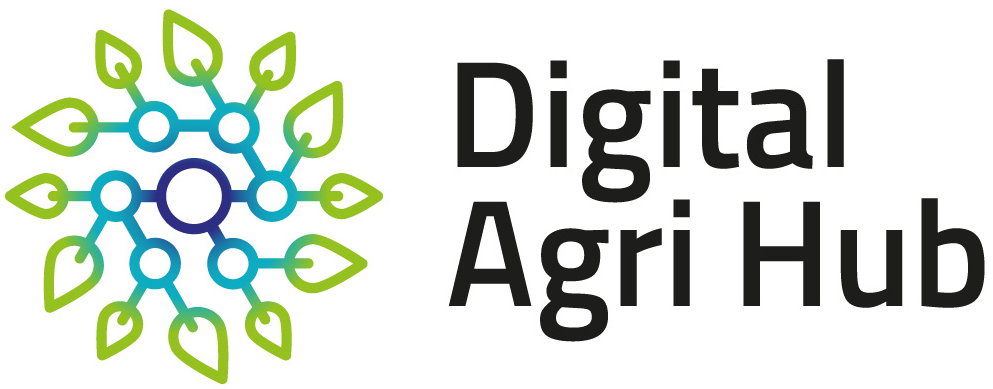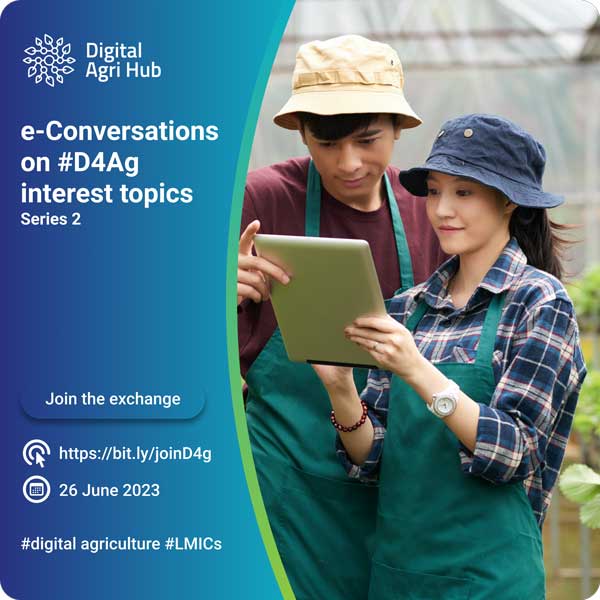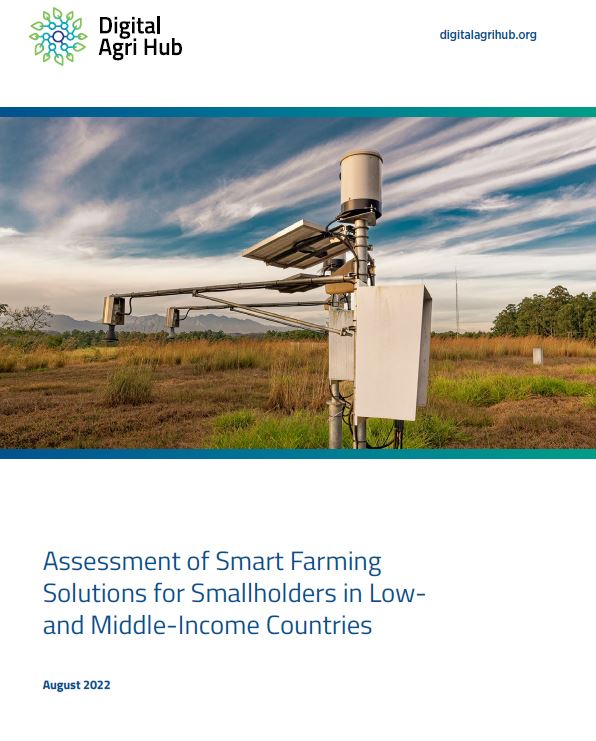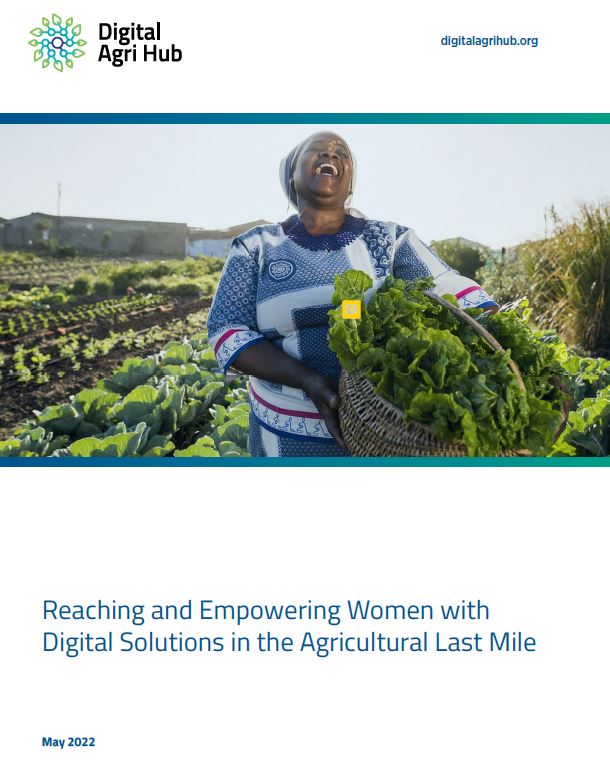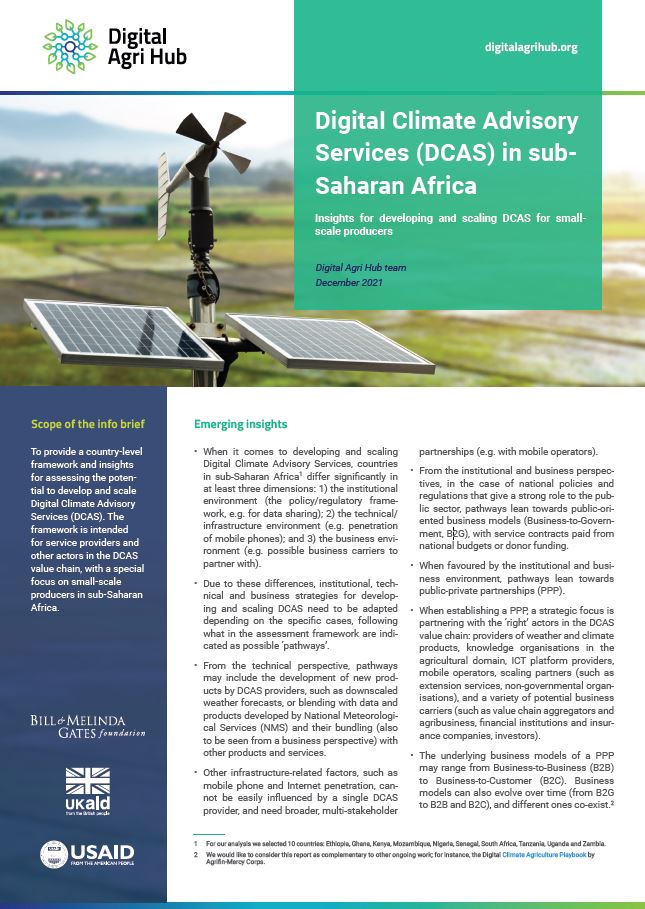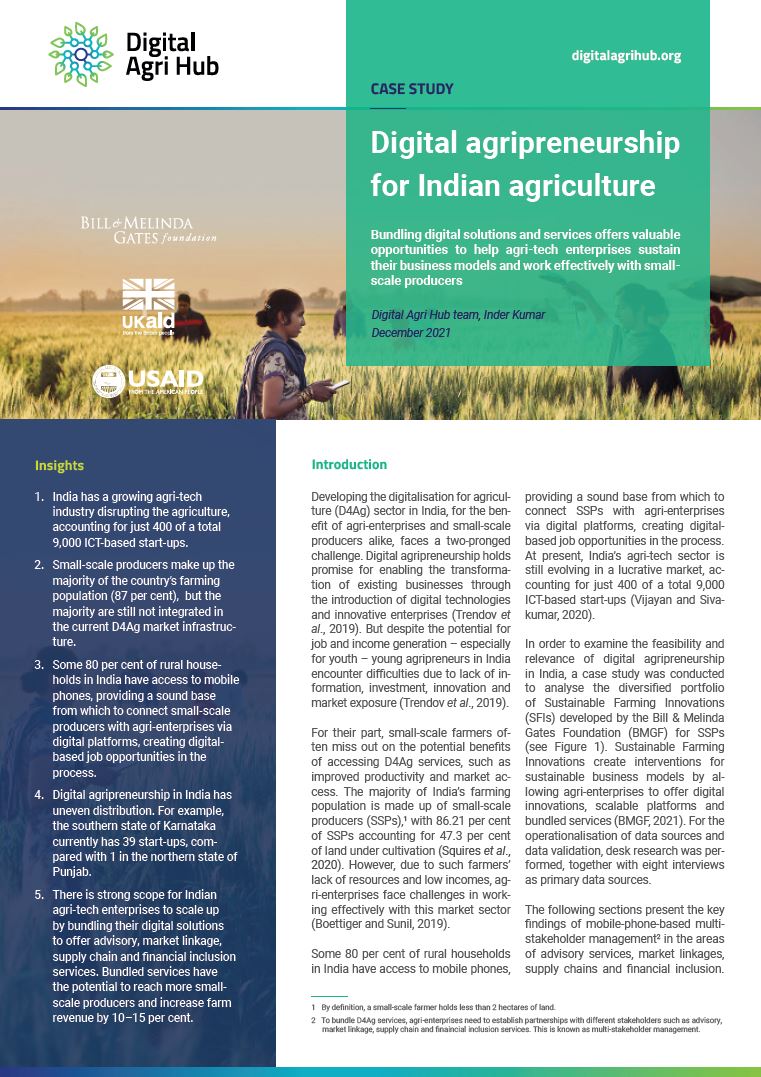Insights

Insights from the Digital Agri Hub e-conversations
Digital Agri Hub organises a series of e-conversations on various topics related to digitalisation in agriculture. They aimed to lead to a more objective, prudent, and realistic attitude on how to approach and present digitalization for small-scale producers in low- and middle-income countries. They have opened new avenues for solving issues that were at the basis of such stereotypes.
A new, 2nd series of e-conversations on D4Ag interest topics started 26 June 2023, with the following outcomes so far:
A new, 2nd series of e-conversations on D4Ag interest topics started 26 June 2023, with the following outcomes so far:
- e-conversation #1: Independent evidence of D4Ag impact is needed. Who would be in the best position to provide it?
- e-conversation #2: Digitalisation and agroecology: a challenging marriage?
- e-conversation #3: Enhancing digitalisation for agriculture with AI: Winners and losers?
- e-conversation #1: Small-scale producers co-designing digital solutions. A myth or reality?
- e-conversation #2: How true is the mantra that small-scale producers benefit from digitalisation?
- e-conversation #3: Is smart farming raising justifiable expectations?
- e-conversation #4: Is gender inclusion in the framework of D4Ag projects a genuine need or a must-include component to satisfy donors’ expectations?
Assessment of Smart Farming Solutions for Smallholders in Low- and Middle-Income Countries
Smart farming solutions can play an important role in helping smallholder farmers in low- and middle-income countries (LMICs) increase their productivity and resilience to disaster by opening access to assets and mechanisation, optimising the use of inputs, labour and natural resources and reducing crop and animal losses and waste.
This report explores the emergence of smart farming solutions in LMICs and identifies opportunities to scale these solutions. It provides supply-side solution providers, such as agritech innovators and mobile operators, as well as the investors and donors that support them, with insights into the smart farming opportunities in LMICs.
This report explores the emergence of smart farming solutions in LMICs and identifies opportunities to scale these solutions. It provides supply-side solution providers, such as agritech innovators and mobile operators, as well as the investors and donors that support them, with insights into the smart farming opportunities in LMICs.
Reaching and Empowering Women with Digital Solutions in the Agricultural Last Mile
This insights document focuses on the role of women in digitised value chains in agriculture. The study, conducted by GSMA with contributions from Digtal Agri Hub partners and D4Ag sector experts, explores current barriers and provides best practices to increase the participation of women. Such best practices cover key pillars of gender inclusive approaches, from gender strategies to foundational interventions that create a gender-inclusive environment and raises the voices of women farmers and systematically applying a gender lens to farmer engagement and product design.
Digital Climate Advisory Services in sub-Saharan Africa
This insights brief presents a framework to assess the potential to succesfully develop and scale Digital Climate Advisory Services (DCAS). The framework is intended for solution providers, investors and other actors in the DCAS value chain. It uses a combination of three proxy indicators: the institutional & policy environment, the technical & infrastructure environment and the business environment. From the assessment, different DCAS development pathways can be derived for different actors in the value chain. To illustrate the use of the framework, it has been applied to 10 countries in sub-Saharan Africa. Based on the outcomes of the assessments, suitable pathways can be determined for the examined countries, e.g. a business-to-government approach or public-private partnerships based on different business models.
Connected with COP26, Digital Agrihub has also launched a theme page on Digital Climate Advisory Services.
Connected with COP26, Digital Agrihub has also launched a theme page on Digital Climate Advisory Services.
Digital agripreneurship for Indian agriculture
This case study explores the current state of play of the digitalisation for agriculture sector in India, for the benefit
of agri-enterprises and small-scale producers. Digital agripreneurship holds promise for enabling the transformation of existing businesses through the introduction of digital technologies and innovative enterprises. At the same time, agripreneurs in India encounter difficulties in developing and deploying impactful digital solutions. The study uses the concept of Smart Farming Innovations (SFIs) developed by the Bill & Melinda Gates Foundation. SFIs create interventions for sustainable business models by allowing agri-enterprises to offer digital innovations, scalable platforms and bundled services.
This brief integrates opinions and views of various important players in the sector. It provides an overview of the current landscape of digitalisation in agriculture in India, the position of different stakeholder groups and the role of policy. It highlights among others the opportunities of bundling digital solutions and services to sustain business models and work effectively with small-scale producers and the critical role of farmer producing organisations for market linkages and for reaching small-scale producers.
of agri-enterprises and small-scale producers. Digital agripreneurship holds promise for enabling the transformation of existing businesses through the introduction of digital technologies and innovative enterprises. At the same time, agripreneurs in India encounter difficulties in developing and deploying impactful digital solutions. The study uses the concept of Smart Farming Innovations (SFIs) developed by the Bill & Melinda Gates Foundation. SFIs create interventions for sustainable business models by allowing agri-enterprises to offer digital innovations, scalable platforms and bundled services.
This brief integrates opinions and views of various important players in the sector. It provides an overview of the current landscape of digitalisation in agriculture in India, the position of different stakeholder groups and the role of policy. It highlights among others the opportunities of bundling digital solutions and services to sustain business models and work effectively with small-scale producers and the critical role of farmer producing organisations for market linkages and for reaching small-scale producers.
